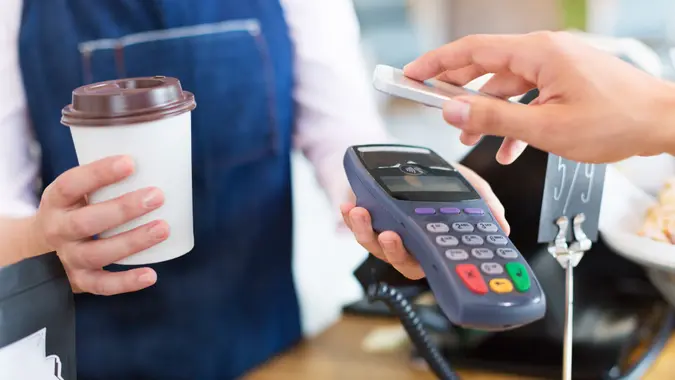How To Stop Being Cheap and Start Being Frugal, According to the CEO of The Financial Diet

Commitment to Our Readers
GOBankingRates' editorial team is committed to bringing you unbiased reviews and information. We use data-driven methodologies to evaluate financial products and services - our reviews and ratings are not influenced by advertisers. You can read more about our editorial guidelines and our products and services review methodology.

20 Years
Helping You Live Richer

Reviewed
by Experts

Trusted by
Millions of Readers
Chelsea Fagan, CEO of The Financial Diet, makes no secret of the fact that she used to be cheap. She also says that she no longer is — but she is frugal, and that’s much better.
“Cheapness is really a completely separate concept from frugality,” Fagan said. “Often, those two things are conflated, especially when people are trying to get good with money. But I think that’s ultimately to our detriment.”
In a YouTube video, Fagan had some advice for those who want to stop being cheap and learn to be frugal instead.
What Cheapness Is and How It Differs From Frugality
Fagan drew a distinction between being cheap and being frugal, explaining that it is about your mindset. “Being cheap,” she said, “is really choosing to exist in a scarcity mentality.”
Fagan defined this cheap mindset as a refusal to invest in better-quality things, even when you have enough money to do so. Cheap people, she said, are too focused on paying the least possible amount that they can in the moment.
“Being cheap fundamentally comes down to a sense of competition, or a sense of scarcity, rather than a sense of abundance,” she said. According to Creative Planning, a scarcity mindset can actually harm financial well-being, as it can lead to poor financial decision-making and impulse spending.
Frugality, on the other hand, is “all about not just living below your means whenever possible, but thinking about the most financially intelligent way to go about any given decision,” according to Fagan.
Understand the Difference Between Inexpensive and Cheap
“I really think in terms of quality and value, but something can be very inexpensive and still have a ton of value,” Fagan said. She emphasized that you have more options and more opportunities to spend money on things that are really meaningful to you if you’re willing to be more patient.
“The more you … separate out quality and cost and you understand how often those things are conflated when they shouldn’t be, or how often you’re sacrificing quality, you really … shift your mentality of what is actually worth spending on,” Fagan said.
How Can You Stop Being Cheap and Start Being Frugal?
In order to move toward abundance and the ability to be frugal, Fagan recommended adhering to the “pay yourself first” mentality of budgeting. She confessed that, although she once used a strictly segmented budget, she found that she doesn’t love it now. Now, she pays her monthly expenses, which include her retirement and her general savings, and considers what’s left to be hers to spend as she likes.
She explained that this method often results in her spending less than she otherwise would, since she doesn’t feel constrained, as she did when she had every dollar accounted for in her budget.
Find the Right Budget
Fagan recommended finding the right budgeting method for you — the method that “allows you to have a sense of peace and calm about your monthly expenses so that it’s not just constantly on your mind,” she said.
In a recent video, money expert Rachel Cruze offered advice about spending money and enjoying life on a budget. She explained that while budgeting can make people initially think of being cheap, a budget can actually help you use your money for things you want.
Because you’re no longer operating from a mindset of scarcity, having a sustainable budget that you don’t have to think about all the time keeps you from obsessing about the price of every purchase. According to Fagan, this allows you to focus on that which has value for you. She offered this sage advice: “Let life take the driver’s seat and let money just kind of be the gas in the car, rather than the reverse.”
 Written by
Written by  Edited by
Edited by 

























